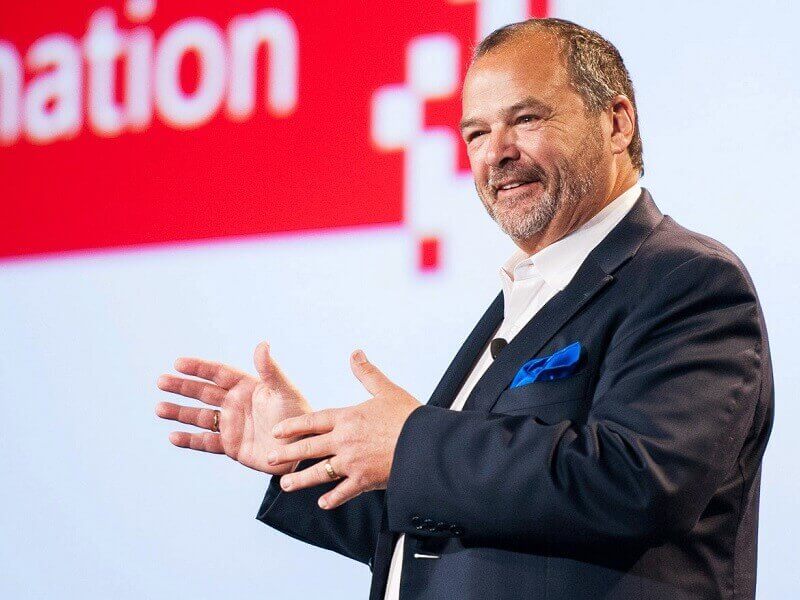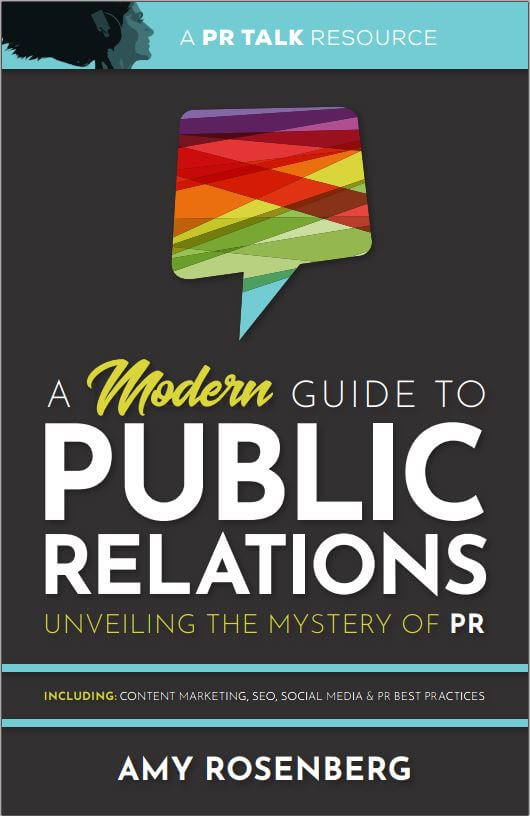![Your Small Business Boom with Steve Strauss [Podcast]](https://www.veracityagency.com/wp-content/uploads/Your-Small-Business-Boom-800x600-1.jpg)
Your Small Business Boom with Steve Strauss [Podcast]
In this week’s episode of the PR Talk Podcast, Amy is joined by Steve Strauss as they chat about contents in his new book, “Your Small Business Boom.” Topics discussed include: pivoting your business, positioning yourself as a thought leader, advertising, pitching, and whether you should be on all social media channels.
Steve is a Small Business Columnist for USA Today and the Founder and President of MrAllBiz.com. Steve is a thought leader, global speaker, spokesperson, content creator, and author of 18 books, including the best-selling Small Business Bible.
Crushing It Online
Amy begins the podcast by asking Steve if he could elaborate on the section in his book titled “Crushing It Online.” The events of this past year and a half have caused many small businesses to struggle, but some excelled. How did those small businesses do it?
Steve explains, “They took either their regular online business and created some extra profit centers to supplement what they’ve been doing. Or they took their analog business and turned it into a digital business and figured out how to do it online.”
Steve then gives insight into an interview with a small business owner who succeeded in pivoting her business. She had eight infrared light spas in New York that she had to close during COVID. After thinking about what she could do, she shifted her attention to a small part of her spa business, selling infrared blankets. She realized that more people wanted to be comforted as they spent more time at home. That anecdote gave him the idea for this section of his book to encourage people to think about what they can do differently for their business.
Positioning Yourself As A Thought Leader
Amy asks Steve if he could provide listeners with some tips on positioning themselves as thought leaders. Steve says that there are two ways to do that: organically and paid. Many small businesses take the organic route. That typically means they’re creating the content, posting it all over their media outlets, and then it’s getting ranked on Google “five years later,” as Steve puts it.
Steve himself has gone that route for many years and encourages people to keep doing that, but if they want to take it to the next level, they must try something else. He believes that the next step would be to put some money behind your content and advertise it. Once you have created a great piece of content, you find an outlet like Google or Facebook to advertise it on and micro-target your audience. According to Steve, there is nothing wrong with advertising your content because it works.
Don’t Pitch A Press Release
Amy then goes on to ask Steve, “how do we get attention in your inbox?” Being a USA TODAY columnist, Steve says he receives about 30-50 pitches a day. One thing Steve doesn’t want you to do is to send him a five-paragraph press release. He just simply doesn’t have time for that.
“You want a pithy little email with a snappy subject line that captures my attention, that’s something I haven’t seen before. It’s unique, different, special in some way and it is one or two paragraphs: ‘Hey Steve, I read your column about why college kids should not start a business in a dorm room. Well, I’ve got a kid who goes to UCLA, and he’s making a million dollars a year.’ Oh, that’s kind of interesting! They know my stuff, they know what I write about, they know what I’ve written about, and it’s a different take than I had.”
Steve then shares another way to pitch people, which is to go “old school” by sending them something physical**. It can be something as simple as sending a hand-addressed envelope enclosed with your pitch and some swag. If Steve receives a hand-addressed envelope or package, he is more inclined to open it.
**interestingly this is something that radio personalities Mike & Amy mentioned in one of our first PR Talk episodes**
Amy and Steve discuss much more in this episode, including millionaire solopreneurs, freelance fortunes, the hub and spoke system, and startups. Listen now to get tips from Steve about how to market your small business and more.
Don’t Miss an Episode
You can access more great episodes by subscribing to the PR Talk podcast on iTunes, Stitcher, Google Podcasts, iHeart Radio and Spotify.
About the guest: Steve Strauss
Steve Strauss is often called “the country’s leading small business expert.” A best-selling author and USA TODAY‘s small business columnist. Steve is an experienced pro who has done hundreds of TV and radio interviews, live appearances, many radio media tours, and much more. Whether you need a keynote, breakout, webinar, tweetchat, or spokesperson, Steve is sure to please.
Connect and follow Steve on social media:
This episode of PR Talk is brought to you by PRSA Oregon
Throughout Oregon and Southwest Washington, PRSA provides members with networking, mentorship, skill building and professional development opportunities – whether you are a new professional fresh out of college or a skilled expert with 20 years in the industry. Check out PRSAoregon.org for more information on how membership can help you grow and connect.



![Steve Strauss, USA Today: Small Business & PR [Podcast]](https://www.veracityagency.com/wp-content/uploads/bybea-Steve-800x600.jpg)






